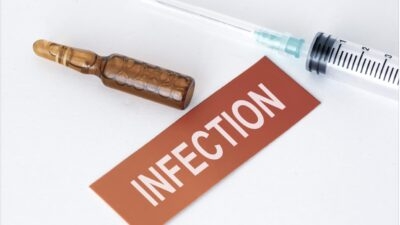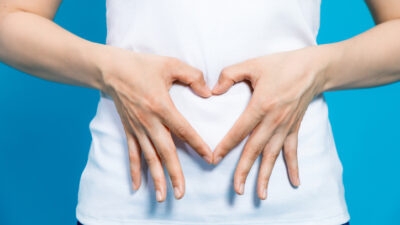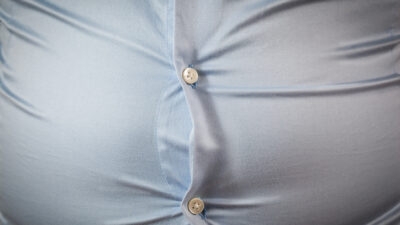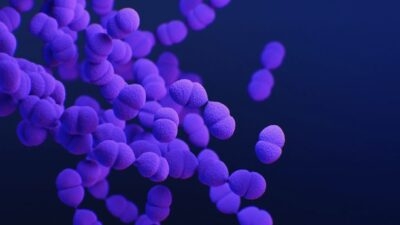Lyme disease

What is Lyme disease?
Lyme disease, also known as Lyme borreliosis is a vector-borne disease. If left untreated it can lead to some very severe health problems. Lyme disease is a bacterial infection that is transmitted to humans almost always by ticks. Ticks are about the size of a poppy seed. Ticks’ favourite habitats are tall grass, leaf-covered ground, and brush.
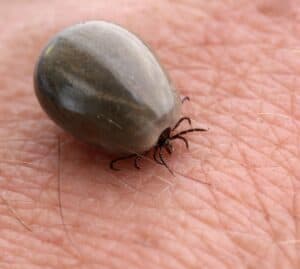
Studies have identified four primary species of bacteria that are responsible for Lyme disease:
- Borrelia burgdorferi
- Borrelia mayonii
- Borrelia afzelii
- Borrelia garinii
Each one is capable of causing symptoms ranging from mild to severe depending on the case. The different types of bacteria also have varying geographic distributions; for instance, B. burgdorferi is most commonly found in North America while B. mayonii has only been reported in the central part of the United States and B.garinii in Europe and Asia.
Lyme disease is the most common tick-borne disease in North America and Europe and one of the fastest-growing infectious diseases in the United States. In the UK the number of confirmed cases of Lyme disease has increased from 23 in 1988, to 953 in 2010.
How do I get Lyme disease?
The only way for a person to contract Lyme disease is through a tick bite from an infected tick black-legged tick commonly known as a deer tick. This results in there being a 25%-50% chance of becoming infected.
There are three stages in the life cycle of a tick. Larva, nymph, and adult tick. Ticks most often transmit Lyme disease during the nymph stage and are usually most active in late spring and early summer in regions where the climate is mild.
Ticks that may cause Lyme disease are found all over the UK, but high-risk places include grassy and wooded areas in southern and northern England and the Scottish Highlands. Another way you may be bitten is within your own home, especially if you have been outside with any pets that may have a tick attached to them.
How do I prevent Lyme disease?
The best way to prevent Lyme disease is to protect yourself from being bitten. This can be done by wearing clothes such as long pants and long-sleeved shirts to cover your skin or by wearing an insect-repellent spray, ideally containing DEET when pursuing outdoor activities.
The CDC (Centers for Disease Control and Prevention) recommends soaking or spraying clothes, shoes, and camping gear such as tents, backpacks and sleeping bags with 0.5% permethrin solution and hanging them to dry before use. Permethrin is odourless and safe for humans but highly toxic to ticks.
What do I do if I have been bitten by a tick?
You should ensure that you fully check yourself and your pets if you have one (dogs can become infected with Lyme disease as well) for any ticks.
It can be difficult to tell if you have been bitten, especially early on, as ticks are the size of a poppy seed. Bites may be confused with spots or boils. However, if you look more closely you can identify the ticks by their legs.
If you do notice that you or a pet has a tick attached, it is important you try to remove it, as Lyme disease can take around 24 hours to be contracted so can be prevented by removing the tick promptly.
How do I remove a tick?
Try using a pair of fine-tipped tweezers for tick removal. Try to grasp the tick as close to the skin as possible. You should then pull away from the skin at a gentle steady pressure. Once you have removed the tick, dispose of it down the toilet and clean the bite area with an antiseptic.
What are the symptoms of Lyme disease?
Diagnosis of Lyme disease is based on a combination of symptoms, a history of tick exposure and laboratory tests for specific antibodies in the blood. Blood tests are often negative in the early stages of the disease and testing of individual ticks is not typically useful.
Even if you have removed the tick, this may not stop you from getting Lyme disease. There are 3 stages of Lyme disease which all have their own symptoms and develop at different stages after the infection. One of the signs of Lyme disease that some people may develop, is a bullseye rash (erythema migrans) at the site of the tick bite. The rash expands slowly over days and can spread to 12 inches (30 centimetres) across. It’s typically not itchy or painful but might feel warm to the touch.
Early Stage: Early Lyme disease stage can easily be mistaken for the flu as a lot of the early symptoms are similar. The first symptom of Lyme disease is usually a red rash that appears in the area around the tick bite and can take the shape of a bull’s eye. Other early symptoms include fever, chills, body aches, joint pain, (usually in the large joints), neck stiffness, tiredness, and swollen lymph nodes which are all similar to flu-like symptoms. (These symptoms will develop days or weeks after becoming infected).
Mid Stage: As the disease progresses to the mid-stage, symptoms can affect many parts of the body including the heart, nervous system, joints, tendons and eyes. These mid-stage symptoms may include an irregular heartbeat and shortness of breath, nerve pain or numbness in your hands or feet or weakness in muscles or facial palsy. Lyme arthritis occurs in up to 60% of untreated people, typically starting about six months after infection.
Late-stage: Lyme disease is often complicated by non-specific symptoms. This is the final stage of Lyme disease and has some of the most sinister symptoms. Weeks, months or even years after infection, you might develop neurological problems such as inflammation of the membranes surrounding your brain and spinal cord (meningitis), temporary paralysis of one side of your face (Bell’s palsy), numbness or weakness in your limbs and impaired muscle movement.
If the disease continues to go without treatment it may spread to other parts of the body such as the heart, lungs and spine. Which could eventually lead to death or paralysis.
What do I do if I have these symptoms?
The first thing to do is to book an appointment with your healthcare provider who may carry out a blood test to see if it is Lyme disease. They may prescribe antibiotic treatments such as amoxicillin, cefuroxime, and doxycycline. These antibiotics will almost always cure your infection. Lyme disease is easier to treat the earlier it is diagnosed so if you do suspect you have been infected do not hesitate to speak to your GP. Later stages might require longer-term, intravenous antibiotics. There is currently no Lyme disease vaccine.
Visit your doctor even if signs and symptoms disappear. The absence of symptoms doesn’t mean the disease is gone. Untreated, Lyme disease can spread to other parts of your body for several months to years after infection, causing arthritis and nervous system problems. Ticks can also transmit other illnesses, such as babesiosis and Colorado tick fever.
About 10% of people treated for Lyme infection don’t shake the disease. They may go on to have three core symptoms: joint or muscle pain, fatigue, and short-term memory loss or confusion. This is called post-treatment Lyme disease syndrome (PTLDS). PTLDS should not be confused with chronic Lyme disease. It can be hard to diagnose because it has the same symptoms as other diseases. Plus, there isn’t a blood test to confirm it.
Experts aren’t sure why Lyme disease symptoms don’t always go away. One theory is that your body keeps fighting the infection even after the bacteria are gone, like an autoimmune disorder.
Sources
Medical Disclaimer
NowPatient has taken all reasonable steps to ensure that all material is factually accurate, complete, and current. However, the knowledge and experience of a qualified healthcare professional should always be sought after instead of using the information in this page. Before taking any drug, you should always speak to your doctor or another qualified healthcare provider.
The information provided here about medications is subject to change and is not meant to include all uses, precautions, warnings, directions, drug interactions, allergic reactions, or negative effects. The absence of warnings or other information for a particular medication does not imply that the medication or medication combination is appropriate for all patients or for all possible purposes.
Related Articles
What is NowPatient
Telehealth and Online Pharmacy
NowPatient is a licensed online pharmacy and doctor service that is available around the world. Our service is FREE and packed with valuable features that can benefit your health such as medication reminders, educational blogs, medically approved symptoms checker, UK NHS online pharmacy, private treatment plans, Rx Advantage card, health conditions information, affordable medications options, genetic testing, home test kits, health risks, pollen meter, air quality monitor, weight loss plans, drug savings programs and lots more!
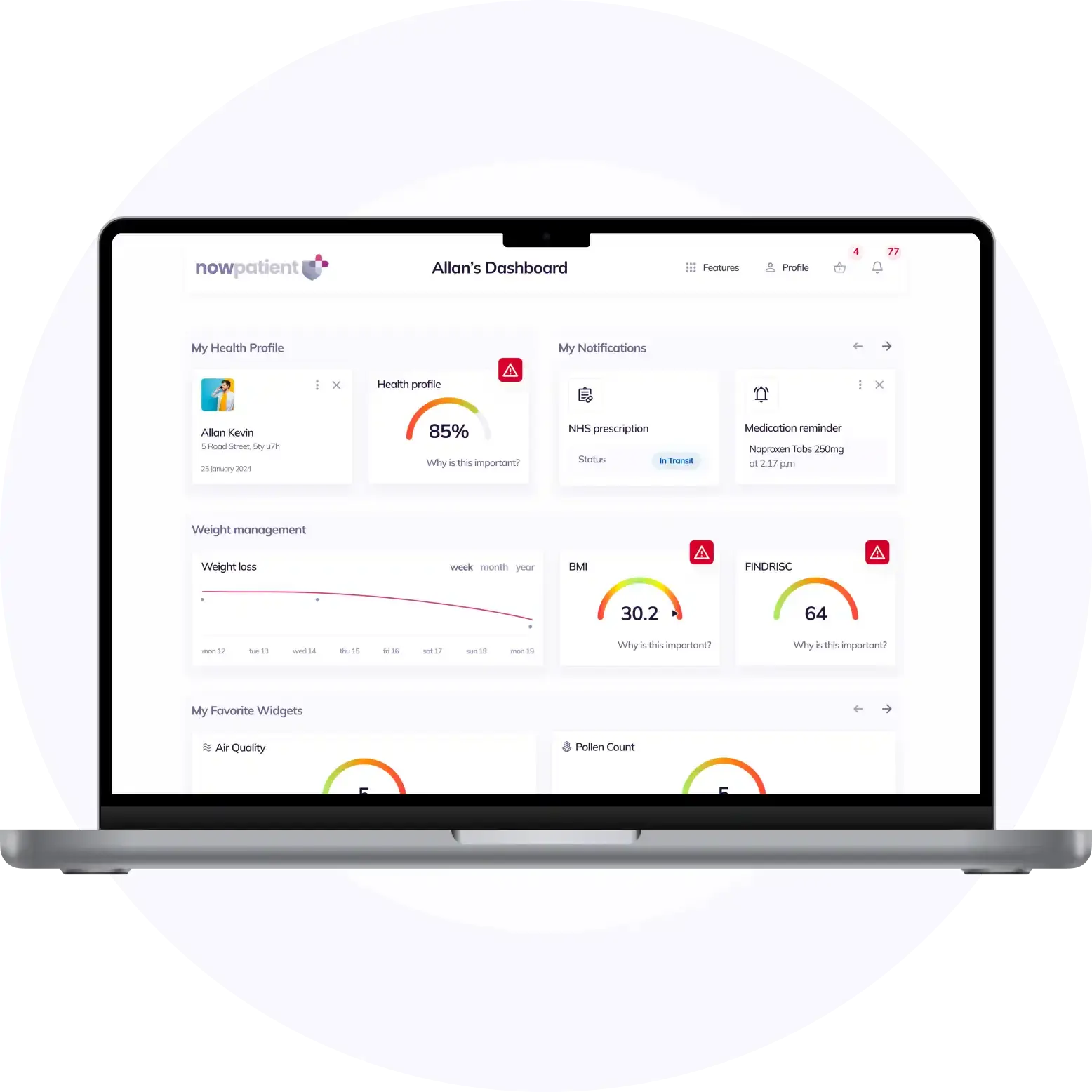
WHY WE BUILT NOWPATIENT
To improve the lives of everyone by making high-quality care accessible and convenient
We are here to improve lives. Our service gives you access to smart features and resources that can help empower you to take control of your health and improve your health outcomes. All this, in one place, for FREE. We strive to bring a fresh perspective to managing health. NowPatient can be accessed by downloading the App or using your web browser.
Download our app today
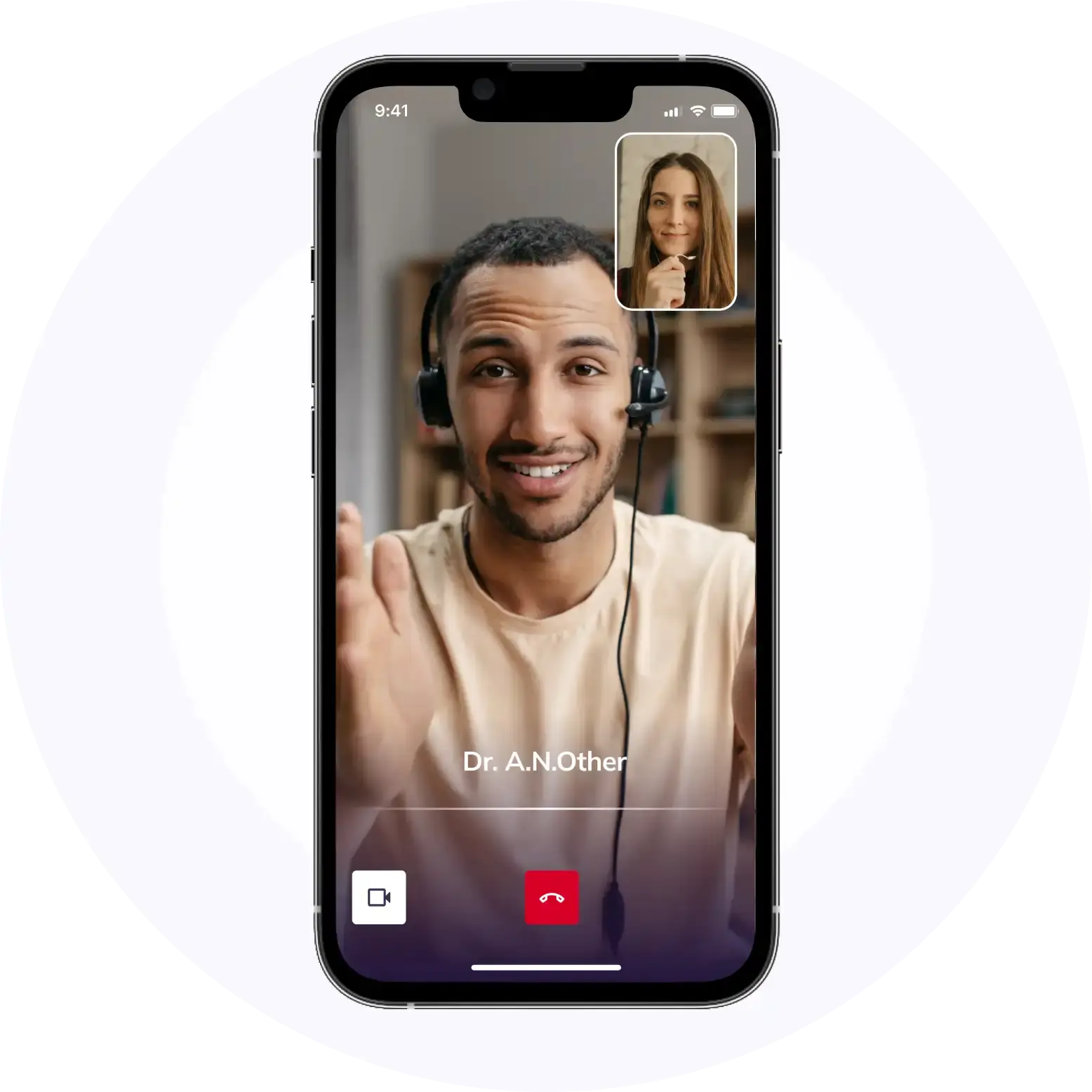
Can I trust NowPatient
Meet our medical team
We are a passionate group of clinicians and medical writers covering a broad range of specialities with experience operating in health systems in the United Kingdom & United States. Providing excellent care and advice is at the heart of everything we do. You can read more about our medical team by visiting the medical team page or learn more about how we curate content by visiting our editorial process
